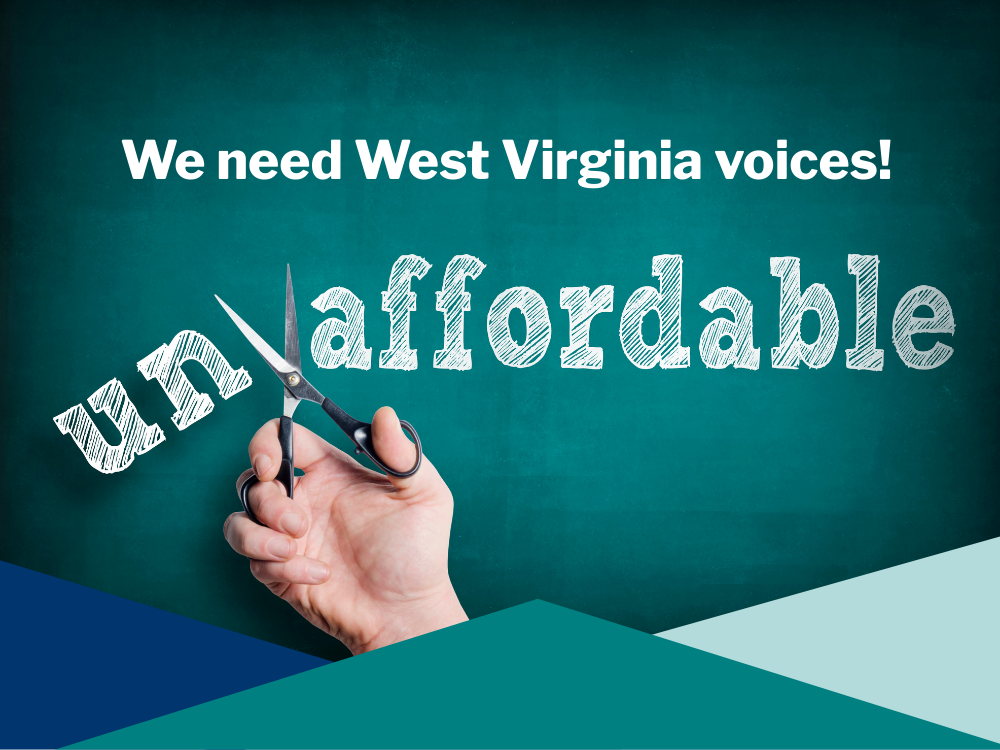- Like
- Digg
- Del
- Tumblr
- VKontakte
- Buffer
- Love This
- Odnoklassniki
- Meneame
- Blogger
- Amazon
- Yahoo Mail
- Gmail
- AOL
- Newsvine
- HackerNews
- Evernote
- MySpace
- Mail.ru
- Viadeo
- Line
- Comments
- Yummly
- SMS
- Viber
- Telegram
- Subscribe
- Skype
- Facebook Messenger
- Kakao
- LiveJournal
- Yammer
- Edgar
- Fintel
- Mix
- Instapaper
- Copy Link
Capital Eye

What a week!
by: Gary Zuckett
The second full week of the Legislature started out slowly as we all dug out from the historic snowfall over the weekend. The snooze button didn’t last long as major contested bills were moving and allied groups held their lobby days.
Tuesday was Environment Day (E-Day) and we set up a display table at the Capitol with lots of other groups. Turnout was lower due to many out of towners still digging out, but the energy was high and lawmakers got to see a good sampling of how many green groups there really were. WV CAG is a founding organization of the WV Environmental Council and still holds a seat on its board. To keep up with green lobbying issues this session, sign up for and read their Green Legislative Update.

Tuesday was also Local Foods Day and Broadband Day so advocates for these issues were also there in force. Local Foods Day was a production of the WV Food & Farm Coalition and Broadband Day was cosponsored by Generation WV and AARP.
Thursday was a day that broke records. First, the House scheduled never before back-to-back public hearings at 8:30 and 9:30 AM on controversial bills that leadership wanted to expedite. The hearing on SB1, the ‘Workplace Freedom Act’, or Right to Work (for less), brought out organized labor and allies to debunk the attack on collective bargaining rights of West Virginia workers.
The second public hearing of the morning was another bill popular with Koch brothers-funded groups, the so-called Religious Freedom Restoration Act (RFRA), designed to legalize discrimination by allowing folks to use “deeply held religious beliefs” to ignore anti-discrimination or just about any other law that they say offends their religion. Fairness WV and the ACLU of WV led the opposition to this bill. Since then, even the Charleston Regional Chamber of Commerce has come out against it saying it would deter economic development by exposing employers to unnecessary lawsuits, perpetuating discrimination and leading to business boycotts.
WV CAG testified against both of these bills that appear to be on the leadership’s priority list. It seems that one has to be suspicious of bills this session that have the word “freedom” in the title.
The other record broken on Thursday was the near 1,000-person turnout for Kids & Families Day. Three of the four declared candidates for governor were there as well as local Senators and Delegates to help kick-off the day of citizens promoting the Our Children, Our Future 2016 Legislative Platform to make our state better for kids and families.
Friday was EITC Awareness Day. The WV Working Families Coalition met for breakfast in the lower rotunda before going out to talk with hometown lawmakers about the benefits of a state-based Earned Income Tax Credit for our state’s low income working families. The WV Senate declared the day “EITC Awareness Day” with the passage of SR14 – now if we can just get them to enact an EITC for West Virginia! One of the highlights of the day was a visit by Landau Eugene Murphy, the West Virginia singer made famous on America’s Got Talent. Murphy is the 2016 EITC Champion of the Year for the VITA (Volunteer Income Tax Assistance) program, one of the Coalition’s leaders.

Weren’t able to make it to EITC Awareness Day? Help us in the fight for working families by sending the House Finance Committee a letter requesting they consider a state EITC. We’ve already written the letter for you! It’s very easy and takes less than two minutes; just click here to get started.
Networking works. Our lobby team is in constant communication with other groups, trading information on bills, committee meetings, and under the radar information. We meet with the allied lobbyists on Wednesdays and with West Virginians United on Fridays to share information on legislation and strategy for moving our bills. Every day around the “well” in the Capitol rotunda, informal chats often lead to quick action on a bill that suddenly appears on a committee agenda. We’re proud to be a part of the progressive team watching out for the interests of regular citizens.
This time of year is our marathon season. Not only do we need to keep the office and our regular campaigns running, but we’re spending most of our time under the dome both promoting improvements to our government and fighting off terrible policies from passing. This is the time of year we need your support the most!
Please take a minute and become a member online or by mail to 1500 Dixie St. Charleston, WV 25312. Your support helps us keep the lights on at the office and keep a seasoned team of lobbyists at the Capitol. Thanks to all who’ve already taken this step to partner with us in our efforts for a better West Virginia!
Action Needed: Tell Your Legislators to Oppose SB 383, Implement Study Recommendations
by: Julie Archer
Your legislators need to hear from YOU about the need to implement the recommendations of the Horizontal Well Act studies to help surface owners. These recommendations include measuring the minimum distance well work could be from homes from the “limit of disturbance” (edge of the well pad), rather than the center of the well pad. A bill implementing the recommendations of these studies would also set measurable limits for noise, light, dust and other air pollution from horizontal drilling sites and require fence-line monitoring for these things.
Our WV Surface Owners’ Rights Organization (WV SORO) might support the forced pooling bill that is being drawn up in based on input from us and other “stakeholders” – IF we also get the additional surface owner protections that the Horizontal Well Act studies show are needed. WV SORO has been in favor of “good” forced pooling legislation because it would to some degree decrease the number of well pads and other surface disturbance (and because it would help get the gas out of the ground more efficiently by preventing over drilling and by preventing waste of isolated “stranded” acreage).
- Click here to see what has to be in a pooling bill for it to be a good pooling bill.
- Click here to who is hurt and who is helped by a good forced pooling bill.
The“stakeholders” pooling bill has not yet been introduced. However, a really bad forced pooling bill (also called lease integration), SB 383, has been introduced at the request of EQT. SB 383 would allow tracts to be pooled into units without surface or mineral owner agreement. The bill says, “The operator’s use of any surface tract overlying the jointly developed leases shall be permissible for that joint development.” So a surface owner’s small tract could be used for one of those monster pad for horizontal drilling into hundreds of surrounding acres of minerals – read literally, even if there was a “no surface use” lease.
Please contact your legislators and tell them to oppose SB 383. Tell them:
“I am against SB 383. I am for a bill that implements the recommendations of the studies the Legislature required DEP to do as part of the Horizontal Well Act. These Studies, conducted for DEP by researchers at WVU, show that surface owners need more protections from noise, light, dust and other air pollution from horizontal drilling sites. We need more protective setbacks for our homes, and the ‘fence-line monitoring those studies suggested. It’s past time to implement these recommendations.”
Click here to contact your legislators.
Thank you for taking action! We’ll continue to keep you updated
throughout the legislative session.
Bills Promoting Local Food in the 2016 Session
by: Levi Pellegrin
The West Virginia Food & Farm Coalition (WVFFC) is a coalition of small farmers and farmers markets to promote local food and farming by developing a network of united farmers that promote access to fresh local foods, shared resources, and beneficial change in the state’s agricultural policies all while preserving the traditions of our farming culture in West Virginia. In the legislative session of 2016, WVFFC members have identified three priority policy changes.
The first priority, referred to as the “Farm to Food Bank Bill” (SB 399) is designed to address two needs: increasing access to healthy foods for low-income West Virginians and helping farmers derive some revenue from food that is otherwise unmarketable. The bill will allow a tax credit for farmers who donate food to a food bank, based on the donated food’s market value. Because it is a difficult year for the state’s budget, we have limited the amount of a tax credit for each farmer to $2,500 annually.
The second bill, called “The Pickle Bill,” (SB 434) is designed to help farmers sell more of their unmarketable food by canning it before it goes bad and selling it later, potentially after the growing season, at farmer’s markets. Currently, in order to sell canned goods (other than high-sugar goods like jams and jellies), a farmer would need to spend thousands of dollars on a commercial kitchen. This bill is designed to make it easier for farmers to sell canned goods like pickles, salsas, and canned vegetables.
The last bill is being referred to as the “Farm-to-Agency Bill” (SB 390) and relates to how state agencies procure foods, similar to the widely successful Farm-to-School programs. There is currently no specific preference for state agencies to buy food grown in West Virginia, though there is a preference for in-state vendors that a distributor based in West Virginia could qualify for, even it sells food from out of state. SB 390 allows agencies to pay 8% more for food grown in West Virginia, an improvement from the current 5% preference for in-state vendors. Experts have found that local food is less often wasted, due to it being fresher and more flavorful, and the state would reap a greater benefit from more of the money it spends staying in the state.
The “Pickle Bill,” and Farm-to-Food Banks Bill are scheduled to be discussed in the Senate Agricultural and Rural Affairs Committee on Monday, February 1st at 1:00pm in room 451-M.
Don’t forget, TOMORROW – come out for the annual Lobby Day for Women’s Lives! RSVP & invite friends: on.fb.me/1Jdl14g.




